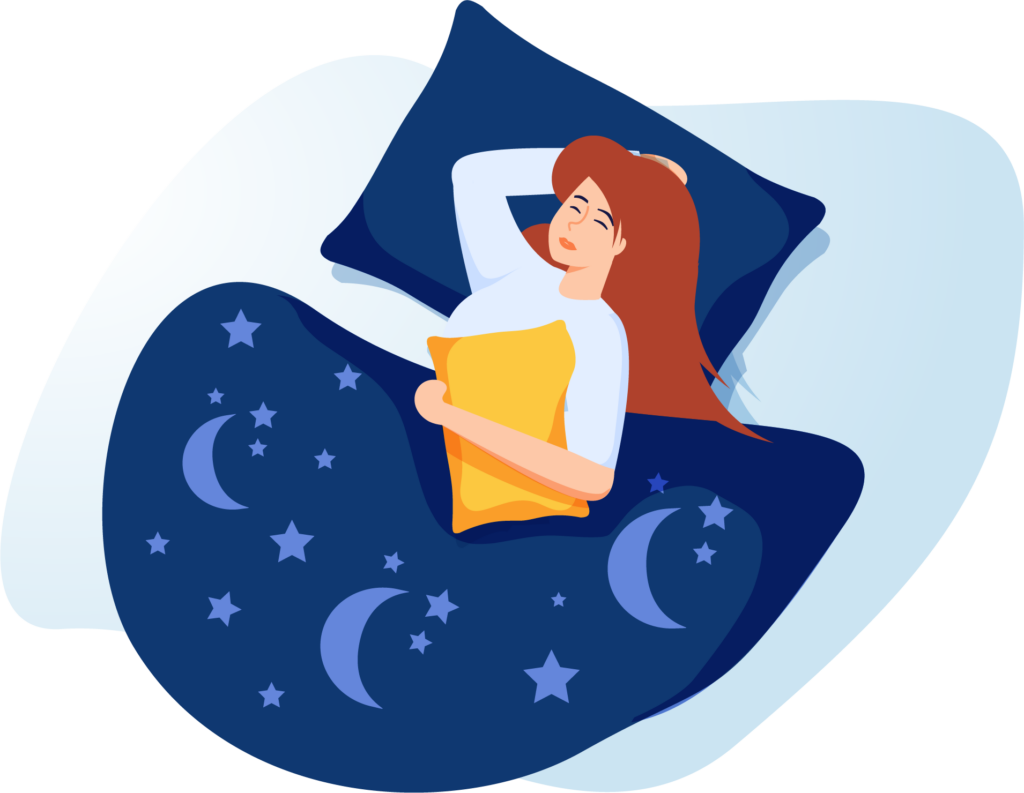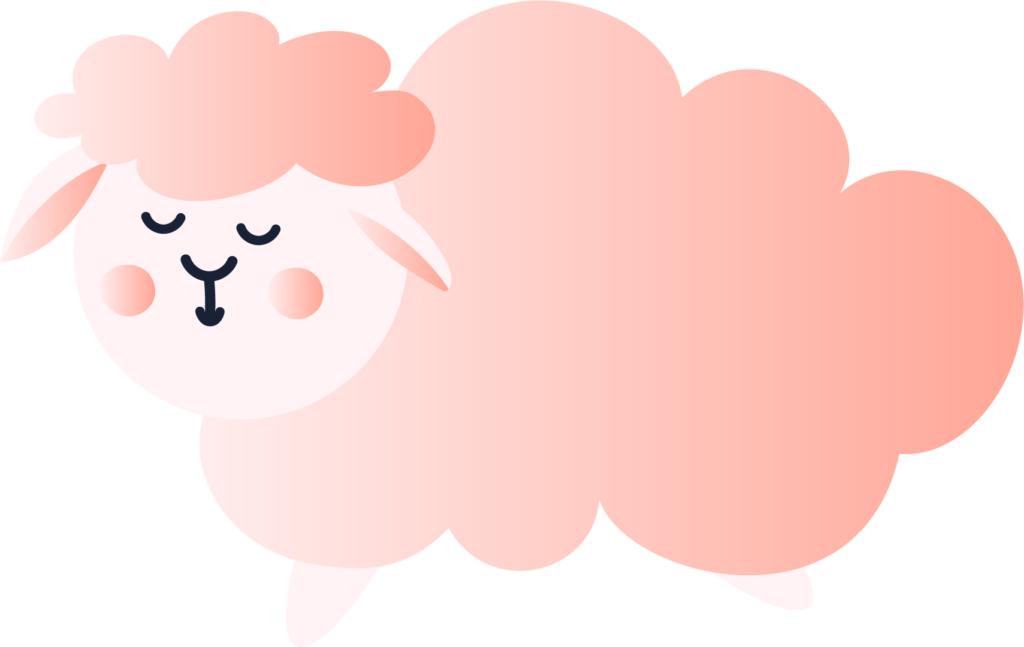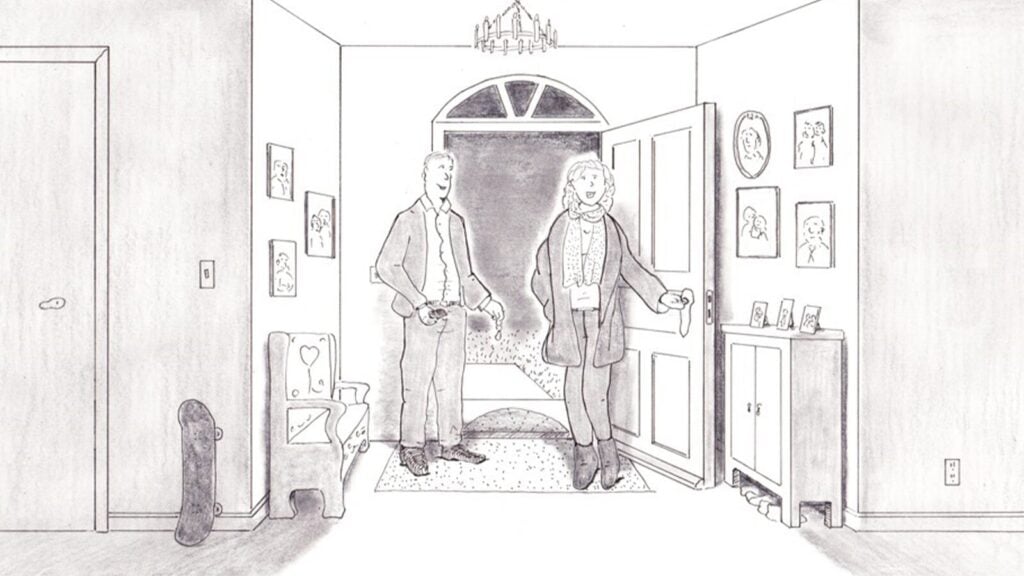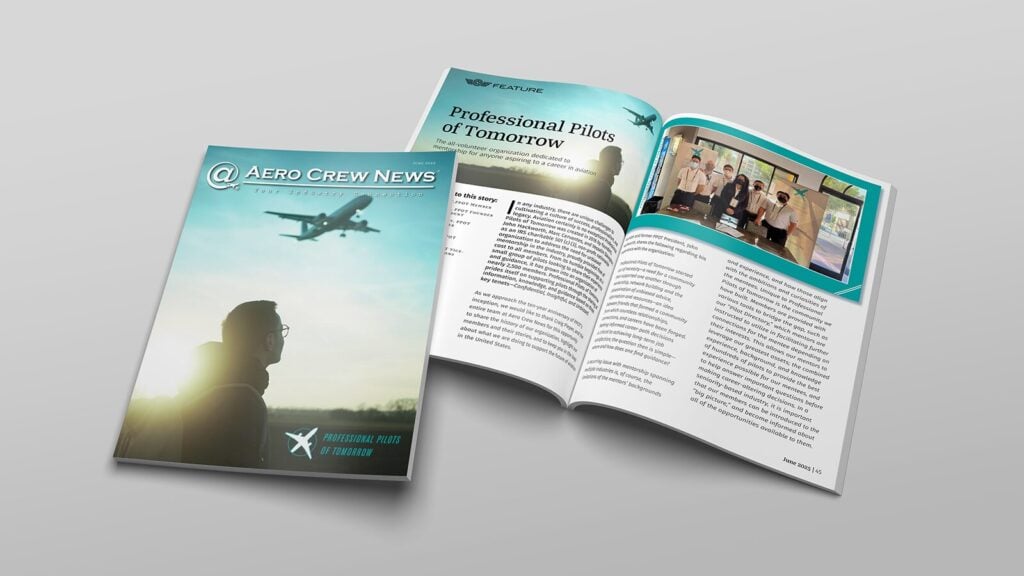
As pilots, achieving restorative sleep is not just essential; it's imperative for ensuring optimal performance and overall safety. However, the demanding nature of the profession, irregular schedules, and time-zone changes often lead to sleep difficulties. While medications are commonly used to manage insomnia symptoms, it does not address the underlying causes of sleep disturbances. Cognitive Behavioral Therapy for Insomnia (CBT-I) is a highly effective non-pharmacological treatment option offering lasting relief and promoting better sleep. This article provides tips and tools for utilizing Cognitive Behavioral Therapy for Insomnia (CBT-I) to enhance sleep.
The impact of sleep disturbances on the ability to function effectively on the flight deck and overall well-being is a common issue. Insomnia, characterized by difficulties falling asleep or staying asleep, can lead to daytime fatigue, impaired cognitive function, and decreased alertness – factors that affect performance and safety.
Limitations of Medications
While medications may offer temporary relief from insomnia symptoms, they are not without drawbacks. Potential side effects, such as daytime drowsiness and cognitive impairment, can pose significant risks for pilots, affecting their ability to make critical decisions and respond quickly to changing conditions in the air. Therefore, various over-the-counter sleep medications are not approved by the FAA. Additionally, sleep medications do not address the underlying factors contributing to insomnia, making them less effective as a long-term solution.
Tips To Use CBT-I
CBT-I involves a collaborative effort between the individual and a trained therapist and is uniquely suited to address the specific challenges in managing sleep disturbances. CBT-I is a structured approach to focus on the underlying thoughts, behaviors, and habits contributing to sleep disturbances. Targeting both the cognitive and behavioral aspects of insomnia offers a comprehensive approach to improving sleep quality and duration. Utilizing Cognitive Behavioral Therapy for Insomnia (CBT-I) techniques can be valuable for optimizing sleep quality.

Here's how you can implement some steps from CBT-I:
Step 1: Education
Educate yourself about healthy sleep habits and the principles of CBT-I. Understand the importance of maintaining a consistent sleep schedule, creating a relaxing pre-sleep routine, and minimizing factors that disrupt sleep, such as caffeine or screen time before bedtime.
Step 2: Assessment
Evaluate your current sleep patterns, noting any factors contributing to insomnia, such as irregular sleep schedules or pre-flight stress. Keep a sleep diary to track your sleep habits and identify patterns or triggers for sleep disturbances.
Step 3: Cognitive Restructuring
Challenge and reframe any negative thoughts or beliefs about sleep. Replace worries about insomnia with more realistic and positive thoughts. Remind yourself that occasional sleep difficulties are normal and that you can improve your sleep over time.
Step 4: Stimulus Control
Associate your bed with sleep by limiting activities in bed to sleep-related behaviors only. Avoid stimulating activities in bed, such as working or watching TV. Reserve your bed for sleep and intimacy to strengthen the association between the bed and sleep.
Step 5: Sleep Restriction
Adjust your bedtime and wake-up time to match your actual sleep duration. Avoid spending excessive time in bed awake, as this can perpetuate insomnia. Gradually adjust your sleep schedule based on your sleep diary to maximize sleep efficiency.
Step 6: Relaxation Techniques
Incorporate relaxation exercises into your pre-sleep routine to promote relaxation and reduce arousal before bedtime. Practice deep breathing, progressive muscle relaxation, or mindfulness meditation to calm the mind and body.
Step 7: Maintenance
Implement strategies to maintain improvements in sleep quality over the long term. Stay consistent with your sleep schedule and relaxation practices, even during layovers or irregular flight schedules. Monitor your sleep patterns regularly and adjust strategies to address recurring sleep difficulties.

Benefits of Better Sleep
By applying these techniques, you can take proactive steps to improve your sleep quality. Prioritize sleep, hygiene, and self-care to ensure you are well rested and alert for safe and efficient flight operations.
Enhanced Cognitive Function – Quality sleep is essential for cognitive function, memory consolidation, and decision-making. Addressing insomnia helps people experience sharper cognitive abilities, which can benefit various aspects of their lives, such as problem-solving skills and interpersonal relationships.
Better Physical Health – Chronic insomnia is associated with an increased risk of various health problems, including cardiovascular issues, obesity, and diabetes. Improving sleep habits can help reduce the risk of these health conditions and lead to overall better physical health.
Stress Reduction – Insomnia often goes hand in hand with increased stress levels. Implementing strategies to improve sleep can also help reduce stress levels, leading to better mental and emotional well-being at work and in personal life.
Enhanced Relationships – Quality sleep can contribute to better mood regulation and emotional stability, which can improve relationships with family and friends. Well-rested people are likelier to have the patience, energy, and emotional resilience to nurture healthy relationships.
Relaxation Exercises
Incorporating relaxation exercises into our daily routine can help reduce stress, improve sleep quality, and enhance our ability to cope with life's challenges. Here are some simple yet effective relaxation exercises that you can easily incorporate into your life to promote relaxation and mental clarity.
Limiting Screen Time – Before bedtime, minimize screen exposure, especially blue light from electronic devices. Engage in screen-free activities like reading or listening to relaxing music to signal your body that it's time to wind down.
Journaling – Before bedtime, jot down thoughts, concerns, tasks, or reflections. Writing in a physical journal can help you process your experiences and emotions, enabling you to clear your mind and prepare for sleep.
Progressive Muscle Relaxation (PMR) – Before bedtime, systematically tense and relax different muscle groups. This technique helps release physical tension accumulated throughout the day, promoting relaxation and better sleep.
Deep Breathing Exercises – To relax the mind, practice diaphragmatic breathing or the 4-7-8 technique wherein you inhale for four seconds, hold for seven seconds, and exhale over eight seconds. Deep breathing can alleviate stress and anxiety.
Mindfulness Meditation – Practice mindfulness to focus on the present moment without judgment. This practice can help quiet the mind, reduce stress, and prepare you for restful sleep.
Stretching – Incorporate gentle yoga poses and deep breathing into your pre-sleep routine. Yoga helps release muscle tension, improve flexibility, and promote relaxation.
Guided Imagery or Visualization – Use guided imagery to imagine peaceful scenes or scenarios, such as flying in clear skies or hiking in nature. Visualization techniques can help calm the mind and ease you into a restful state before sleep.
Incorporating these exercises into your nightly routine can significantly improve sleep quality, ensuring you are well rested and alert. Addressing insomnia without medications benefits performance at work and positively impacts your overall health and well-being outside of work.

Final Thoughts
Cognitive Behavioral Therapy for Insomnia (CBT-I) offers tailored, evidence-based tools to address sleep disturbances, helps empower to overcome insomnia, and promotes better sleep without reliance on medications. By prioritizing sleep health, you are able to enhance your performance in the air, ensure the safety of every flight, and improve your overall quality of life.
If you find it challenging to change your sleep patterns despite your efforts, reaching out to a therapist can provide valuable support. Emerald Mental Health can offer personalized guidance, identify underlying factors affecting your sleep, and introduce effective interventions tailored to your specific needs. Together, we can work towards improving your sleep quality and overall well-being.
Sources:
Baron, K. G., Perlis, M. L., Nowakowski, S., Smith, M. T., Jr., Jungquist, C. R., & Orff, H. J. (2017). Cognitive behavioral therapy for insomnia. In H. P. Attarian (Ed.), Clinical handbook of insomnia (3rd ed., pp. 75–96). Humana Press/Springer Nature. https://doi.org/10.1007/978-3-319-41400-3_6
Smith, L., & Malinowski, P. (2020). Cognitive Behavioral Therapy for Insomnia in Commercial Pilots: A Review of Current Evidence and Practical Recommendations. Aviation, Space, and Environmental Medicine, 91(8), 745-751. doi: 10.3357/ASEM.4901.2020
Sateia, M. J., Buysse, D. J., Krystal, A. D., Neubauer, D. N., & Heald, J. L. (2017). Clinical practice guideline for the pharmacologic treatment of chronic insomnia in adults: An American Academy of Sleep Medicine clinical practice guideline. Journal of Clinical Sleep Medicine, 13(2), 307-349. https://doi.org/10.5664/jcsm.6470






























































































































































































































